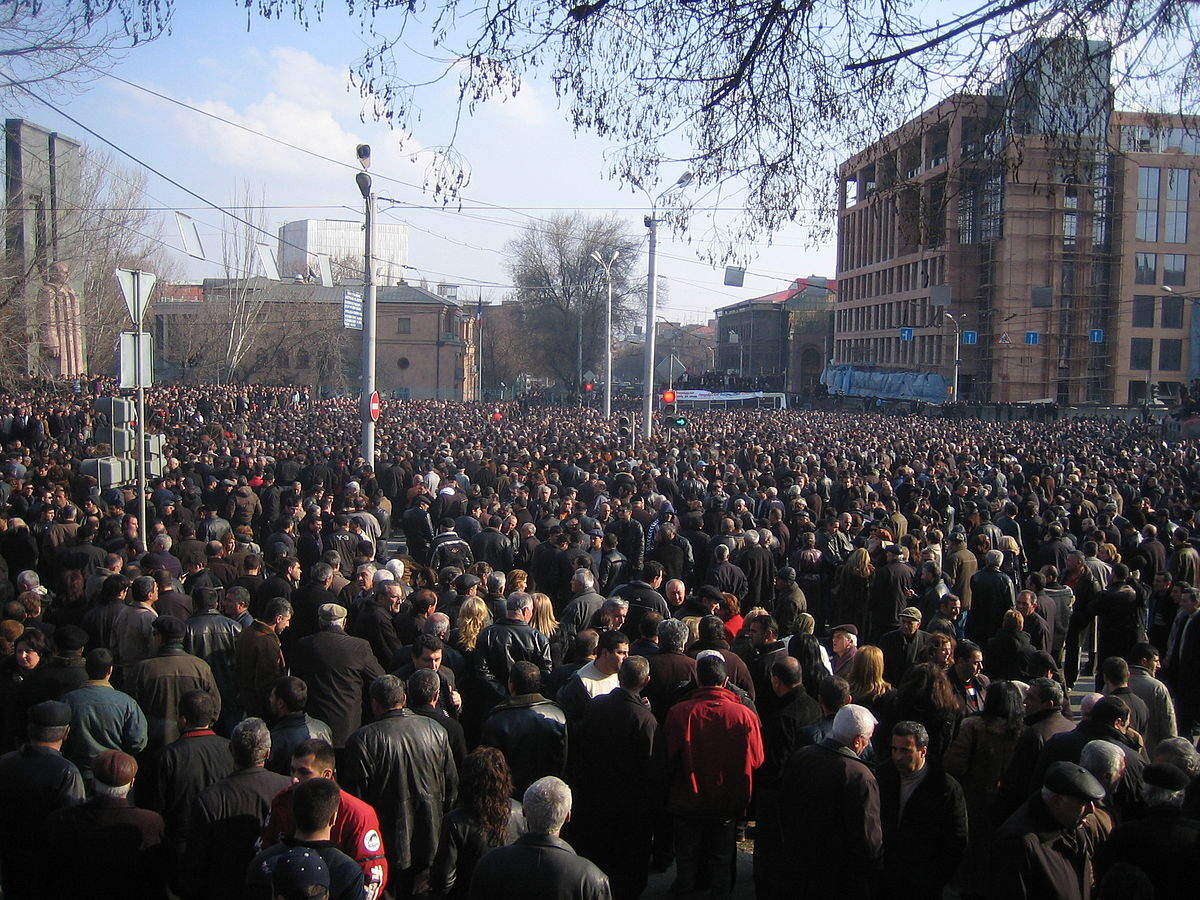
Thousands of people across Serbia have protested this weekend against two proposed laws that campaigners argue will permit foreign companies to take advantage of local mineral resources.
In the capital, Belgrade, protesters set up roadblocks on a major highway and bridge that links the city centre to the suburbs. Thousands gathered on the main bridge chanting, “Rio Tinto go away from the Drina River”.
How well do you really know your competitors?
Access the most comprehensive Company Profiles on the market, powered by GlobalData. Save hours of research. Gain competitive edge.

Thank you!
Your download email will arrive shortly
Not ready to buy yet? Download a free sample
We are confident about the unique quality of our Company Profiles. However, we want you to make the most beneficial decision for your business, so we offer a free sample that you can download by submitting the below form
By GlobalDataThey held banners reading, “Stop investors, save the nature”, “We are not giving away the nature in Serbia”, and “For the land, the water, and the air”.
Rio Tinto and the Jadar valley
The protests were primarily in objection to Rio Tinto’s Jadar lithium project, and Zijin Mining’s recently opened Čukaru Peki copper and gold mine, which they claim will pollute land and water in the Balkan nation.
The Jadar lithium project has engendered significant controversy in Serbia. In July, Rio Tinto announced a $2.4bn investment in the project in the Jadar Valley, with the view that it would become Europe’s biggest lithium mine and one of the world’s largest on a greenfield site.
Rio Tinto have estimated that over its 40-year life, the mine will produce 2.3 million tonnes of battery-grade lithium carbonate and 160,000 tonnes of boric acid annually. Both of these are critical to developing lithium-ion batteries and renewable technology.
Subsequently, Rio Tinto has boasted that the mine will make it one of the top 10 lithium producers globally, with the potential to produce enough raw material for over one million electric cars per year. Mine construction is expected to begin early next year, with the first production expected in 2026.
Protest movement
However, despite the potential of the Jadar facility in providing significant amounts of lithium to the European market within Serbia, there are fears that it could have a destructive environmental impact.
The Jadar Valley is one of Serbia’s main agricultural hubs, responsible for around a fifth of total agricultural production. According to a special plan published by the Serbian Government, the zone at risk of subsidence will be spread across 850 hectares, the size of more than 1,000 football pitches.
The excavation process will entail a significant environmental toll, generating 57 million tonnes of waste over the mine’s life . As a result, the mine will involve the relocation of 81 households, voluntary or otherwise, and the purchase of 293 landowners’ fields.
“Such mines are mostly opened in deserts precisely because of the detrimental effect on the environment and biodiversity,” said Professor Dragana Đorđević, head of environmental chemistry and engineering at the University of Belgrade.
Given the dubious record of Rio Tinto in preventing environmental degradation on their mine sites, many within Serbia have shown outright objection to the project.
The protests have been fueled further by a controversial referendum law passed last month, making it harder for people to protest against polluting projects and a new expropriation law, which makes it easier for the state to acquire private land.




